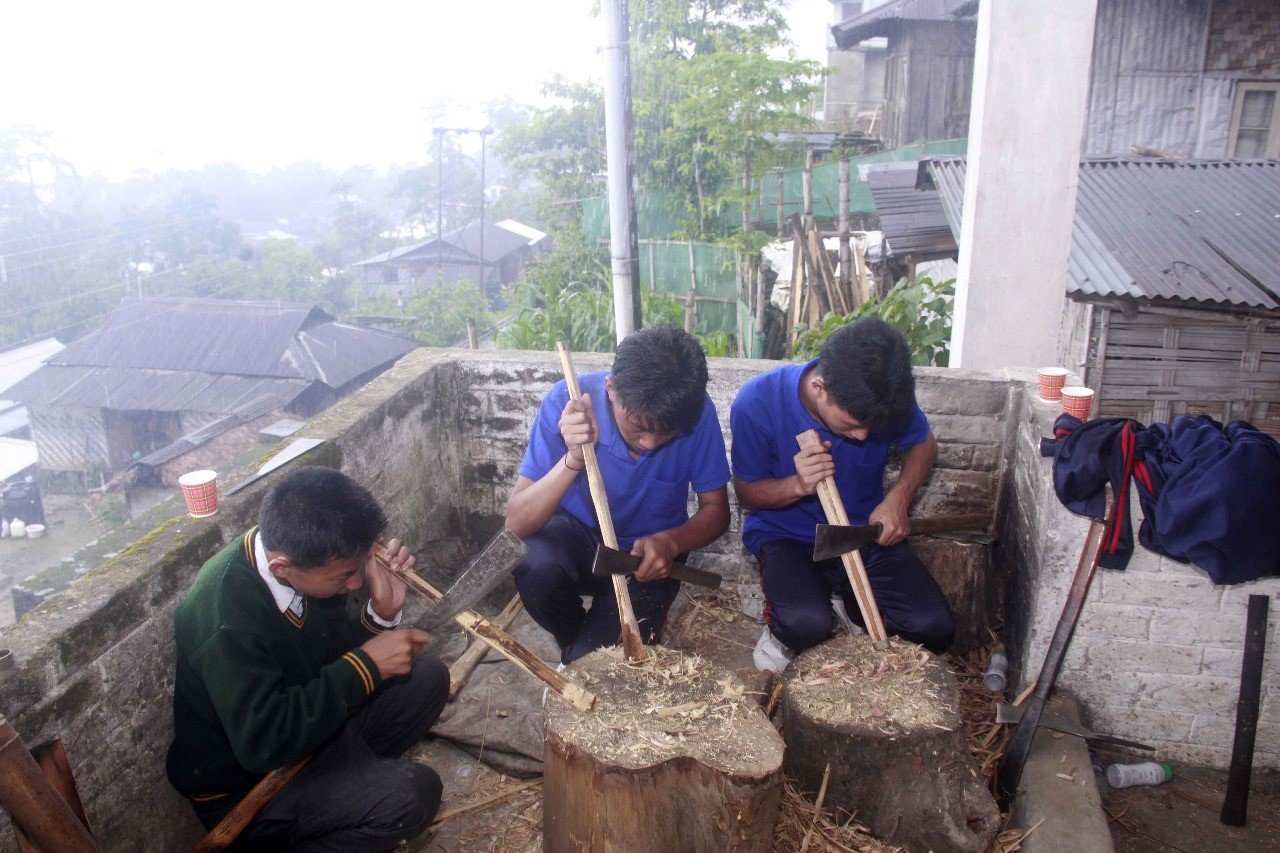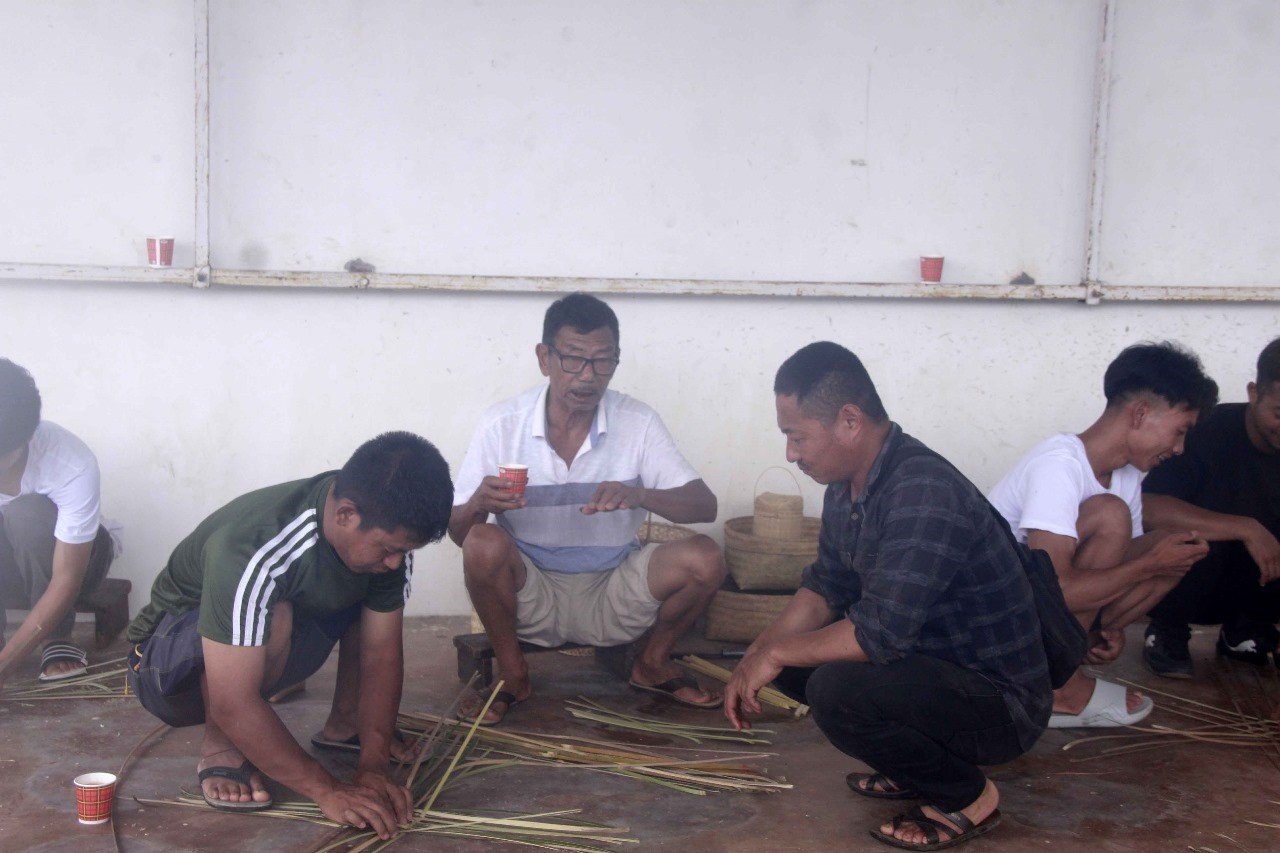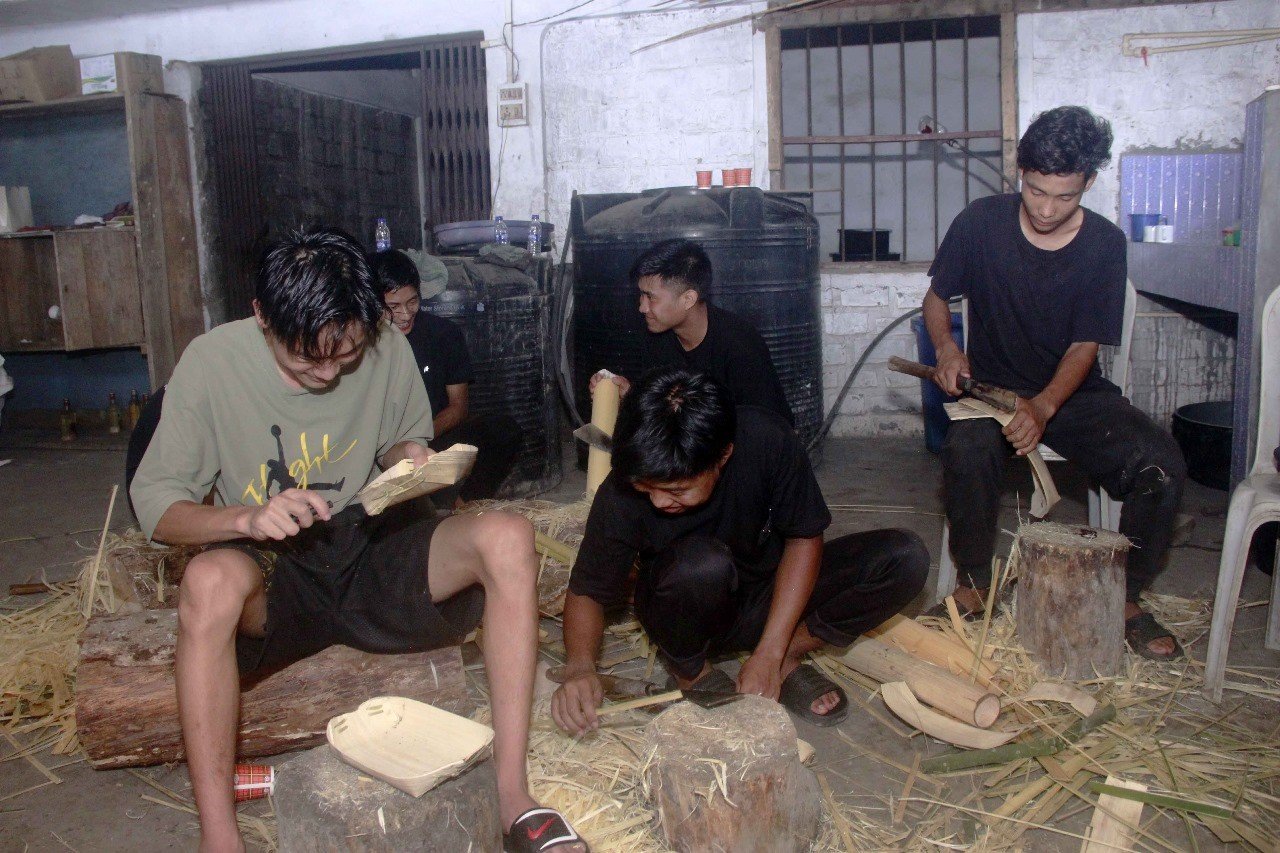With the aim to reintroduce young people to village-based self-sufficiency, the Sungratsü Students’ Union (SSU) conducted a two-day Skill Development Workshop from June 24 to 25 under the theme “Self-Reliance”, positioning the youth as central players in revitalizing traditional practices while integrating modern sustainable approaches to farming and resource use.
The workshop, rooted in the idea that solutions to present challenges can emerge from within
communities, combined heritage-based learning with practical livelihood training, drawing attention to the need for local knowledge systems to be adapted—not abandoned.
On the first day, held at Senden Salang, Sungratsu, students engaged in a series of hands-on sessions in bamboo-based utility crafts—including basket-making, machete handles, bamboo plates, and mats. In addition, participants explored basic value addition processes such as pickle-making using household leftovers and local produce.
What distinguished the programme was not only the craft itself, but the return to the learning style of the Arju and Tsuki dormitories—community institutions that once fostered informal, peer-led education.
Download Nagaland Tribune app on Google Play
https://play.google.com/store/apps/details?id=com.news.nagalandtribune < Hyperlink >
According to SSU President Tekameren Aier, such learning spaces remain relevant. “The knowledge shared in these settings is practical, sustainable, and suited to our environment. By bringing students back to this form of learning, we are also reconnecting them with the roots of community responsibility,” he said.
Trainers emphasized that these crafts were not simply traditional art forms, but viable skills that could be turned into micro-livelihoods.

The second day of the workshop was held at Yimchalu, a village known for blending eco-tourism and farm-based activities. Here, participants observed organic green tea processing and other sustainable farming practices. Sessions were facilitated by experts from Krishi Vigyan Kendra (KVK), Yimsemyong, who introduced techniques suitable for small-scale implementation, such as home kitchen gardens and agri-based value addition.
Dr. Sarenti, a resource person from KVK, stressed the role of young people in adapting agricultural practices to current realities, particularly in promoting low-input, high-return methods that make use of existing local resources.
The interaction was further enriched by C Wati Walling, Chairman of Yimchalu Village Council, who spoke on the village and its transition toward a model of rural enterprise driven by youth participation and sustainable tourism.

Senior student leader Lanulemba Longchar said the intent of the workshop was to make students aware of the practical potential of their surroundings—both in terms of culture and natural resources. “We want to cultivate a mindset of contribution, where students don’t see themselves as waiting for opportunities but as creating them with what they have,” he noted.
The workshop was facilitated by a diverse team of trainers and practitioners. Day 1 trainers included K Zulu Lemtur, Nokenwapang Ozukum, Imolila, Mejongsangla, Alisoa Aier, Shilutemsu Walling, Rediwapang, De Temjensangla Pongener, Chubayondang Walling, and Takawati Walling. Day-2 of the workshop featured Dr. Sarenti and his colleagues from KVK along with C Wati Walling.


